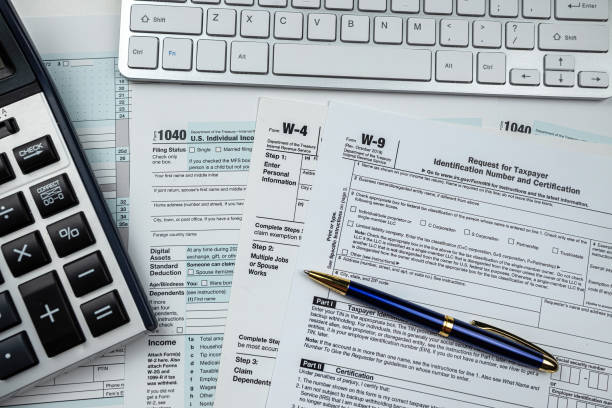Introduction
As a freelance consultant, managing your taxes can be a daunting task. Unlike traditional employees, freelancers face unique challenges when it comes to tax filing and maximizing their tax savings. Understanding the intricacies of the 1099 tax form, self-employment tax, and quarterly estimated tax payments is crucial for freelancers to ensure compliance with tax laws while minimizing their tax liabilities.
In this article, we will explore the best practices for freelance consultants to navigate tax filing, including tips for maximizing tax savings, utilizing tax deductions and credits, and meeting tax obligations.
Understanding Freelancer Tax Obligations
Freelance consultants must be aware of their tax obligations to avoid penalties and ensure compliance with the Internal Revenue Service (IRS). Unlike traditional employees who have taxes withheld from their paychecks, freelancers are responsible for calculating and paying their taxes. One of the key aspects of tax obligations for freelancers is the self-employment tax, which covers Social Security and Medicare taxes.
To determine the amount of self-employment tax, freelancers can use a social security tax calculator provided by the IRS. This calculator helps estimate the tax owed based on their freelance income. It is important for freelancers to set aside a portion of their earnings to cover these taxes, as failure to do so can result in unexpected tax liabilities and penalties.
Establishing a disciplined approach to budgeting for self-employment taxes is key for freelancers. By consistently setting aside a predetermined percentage of their income, freelancers can avoid the stress of unexpected tax burdens at year-end. Proactive tax planning not only ensures compliance with tax obligations but also helps freelancers manage their finances more effectively.
In essence, a strategic and proactive approach to handling self-employment taxes empowers freelancers to maintain financial stability and navigate the complexities of tax responsibilities with confidence.
Additionally, freelancers should stay informed about any changes in tax regulations that might impact their obligations. Regularly reviewing and adjusting their budget for taxes allows freelancers to adapt to evolving tax laws, reducing the risk of miscalculations and potential penalties.
Maximizing Tax Savings for Freelance Consultants
Freelancers often struggle with maximizing their tax savings due to the lack of employer-provided benefits and deductions. However, there are several strategies that freelance consultants can employ to minimize their tax liabilities and increase their tax savings.
Firstly, freelancers should keep detailed records of their income and expenses throughout the year. By tracking all business-related expenses, such as office supplies, travel expenses, and professional development courses, freelancers can claim deductions that reduce their taxable income. Additionally, freelancers should explore tax credits available to them, such as the home office deduction or the health insurance premium deduction.
Secondly, freelance consultants should consider making estimated tax payments on a quarterly basis. These payments help freelancers avoid underpayment penalties and ensure that they meet their tax obligations throughout the year. By estimating their income and tax liabilities, freelancers can calculate the appropriate amount to pay each quarter.
Additionally, timely quarterly tax payments contribute to better financial planning for freelance consultants. It allows them to budget effectively and avoid facing a substantial tax burden at the end of the fiscal year. Proactive management of tax obligations also enables freelancers to maintain a clear financial picture, making it easier to allocate funds for business expenses, savings, and investments. In essence, regular estimated tax payments foster financial discipline and help freelancers stay on top of their fiscal responsibilities.
Furthermore, making quarterly tax payments offers freelancers the opportunity to take advantage of tax deductions and credits as they arise. By staying current with their tax obligations, freelancers can more easily identify eligible expenses and deductions throughout the year, maximizing their tax efficiency. This proactive approach not only minimizes the risk of overlooking potential tax benefits but also provides a comprehensive overview of the financial health of the freelance business.
Utilizing Tax Software and Professionals
To simplify the tax filing process, freelance consultants can leverage tax software specifically designed for self-employed individuals. These software programs guide freelancers through the necessary steps, ensuring accurate calculations and proper completion of tax forms. Popular tax software options for freelancers include TurboTax, H&R Block, and TaxAct.
Alternatively, freelance consultants may choose to work with a tax professional who specializes in self-employment taxes. A tax professional can provide personalized advice, help identify potential deductions and credits, and ensure compliance with tax laws. While hiring a tax professional incurs additional costs, it can save freelancers time and provide peace of mind knowing that their taxes are handled by an expert.
Conclusion
Navigating tax filing as a freelance consultant can be complex, but by understanding your tax obligations, maximizing tax savings, and utilizing tax software or professionals, you can streamline the process and ensure compliance with tax laws. Remember to keep detailed records, claim eligible deductions and credits, make estimated tax payments, and seek professional assistance when needed. By implementing these best practices, you can confidently manage your taxes as a freelance consultant and focus on growing your business.

